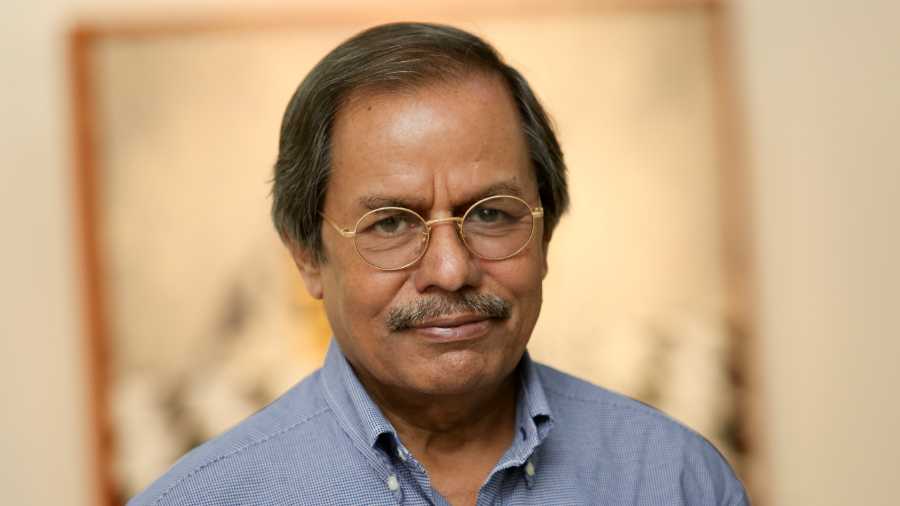The targeting of minorities in Bangladesh is a mirror image of what has been happening in India these past years. Do you think the events in India have brought this on?
Whenever acts of violence against Muslims are carried out in India (the Asansol riots of 2018 and Delhi riots of 2020, for example) there are repercussions in Bangladesh. But things cool down in a few days, and life returns to normal, although the trauma and fear of the Hindu community remain. There is strong resistance against such violence from the major political parties, civil society, and students’ and workers’ unions. But the rise of hostilities against Muslims in India — especially in the last seven to eight years — alongside the populist rhetoric of some of the political leaders which hurts the sentiments of the Muslims, threaten them with deportation, the use of NRC [National Register of Citizens] in Assam targeting the Muslims and the frequent border killings have only made matters worse and emboldened the rank and file of some Rightist and other parties here — as well as many without party affiliation — to take things into their own hands. The recent incidents were a continuation of this trend.
What actually happened in Bangladesh? Why do you think it happened?
There were a number of sudden attacks, first on puja mandaps and temples in some places during Durga Puja, and then on Hindu households and businesses in a few villages and towns, some of which were torched. Apart from the India factor that contributes to communal violence in Bangladesh, there are other reasons behind these attacks. The first one is a continuation and intensification of the historical legacy of communal hostility. Allowing religion to define politics and putting it above a united fight for the nation was a recipe for violence and bloodshed that accompanied the partition of 1947, and the continuing hatred and distrust between the two communities ever since. After the liberation war of 1971, Bangladesh wrote a constitution with secularism as a state principle. But the assassination of Bangabandhu Sheikh Mujibur Rahman in 1975 and the rise of the Rightist and non-liberal forces to power meant the return of religion to politics... Another reason behind the attacks has been a combination of the rise of Islamophobia (and the depiction of all Muslims as terrorists) in the West, the spate of attacks on Muslim countries in the Middle East by coalitions of some Western countries and the oppression and forced eviction of Palestinians from their land by Israel, which continue to breed deep anger and frustration among youths here. These youths, without any meaningful employment and access to sources of enlightenment can — and are — manipulated by religious hardliners to resort to acts of violence.
Such incidents are on the rise. How should this be dealt with?
My perception is that incidents of violence against minorities in the subcontinent cannot be addressed only by the governments through their security forces, the police, the legislature and the courts, or even by the secularist politicians. What we need is a coordinated approach involving everyone who has a stake in maintaining communal harmony. But in my opinion, freeing the subcontinent from the spectre of communal violence will be extremely difficult, because communalism (and distrust of minorities) is deeply ingrained in all our societies.
Religious fundamentalism and the subcontinent. What are your thoughts?
The subcontinent has a long history of communal hostilities, but these rarely took the form of riots because the communities, left to themselves, settled their disputes and, in spite of mutual suspicion and distrust, managed to keep friction within control. Organised riots, as I have already suggested, are recent phenomena and are outcomes of the distrust and hatred fanned by communal politics and intensified by the religious Right.
Bangladesh, India, Pakistan each fought a bitter fight to overthrow the yoke of colonialism, to write a new history. Has someone set the clock back? In the context of what is happening all around, does it not seem like we are journeying backwards?
Yes, the countries threw away the yoke of colonialism, but that was only territorial and political. After the departure of the British — and in case of Bangladesh, the Pakistani military-bureaucratic rulers put a second yoke of neo-colonialism around our neck — we retained all their administrative and governance mechanisms, so that the security apparatuses and civil administration, the judiciary and politics kept pursuing the old models, in letter and spirit. Nothing changed, not even the way we provide education, collect taxes... Even the way we envision our future — which is largely informed by the discourses of development, GDP growth and self-sufficiency in food and power — follows the model set by colonial ideologies... I don’t think we are journeying backward though, but neither are we making the desired progress in decolonising our social, political and economic institutions, or our education and knowledge systems. That is why inequalities prevail, rights are abused and communalism persists.










